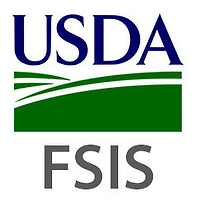When it comes to food safety concerns, American consumers are most worried about chemicals in food, according to the International Food Information Council (IFIC) Foundation’s 2015 Food and Health Survey. Previously, consumers’ concerns were centered around foodborne illness.
To consumers, the term “chemicals” carries a negative connotation--generally perceived as food ingredients that are man-made. However, foodborne illness is a major concern when it comes to possible risks to consumers.
Findings from IFIC’s survey include:
- 36 percent of Americans said that chemicals such as pesticides in food is the most important food safety issue to them and their family
- 34 percent chose foodborne illness from bacteria as their primary concern (last year, only 23 percent chose this option)
Some say that the risks posed by pesticides in food isn’t nearly as big an issue as the risk of foodborne illness.
"The risks posed by pesticides in food pale in comparison to the risks from foodborne illness,” says Carl Winter, extension food toxicologist and vice chair of the Department of Food Science and Technology at the University of California at Davis.
“Our typical exposure to pesticide residues is at levels more than 1 million times lower than levels that, when given to laboratory animals on a daily basis throughout their lifetimes, do not produce any noticeable effects in the animals. This strongly contrasts with the risk of foodborne illness, where the U.S. Centers for Disease Control and Prevention estimates the incidence at 48 million cases per year in the U.S."
The problem is that what consumers believe are risks versus what risks actually do exist are two different things.
“The responses to the ‘most important food safety issue’ question illustrate the difference between perceived risk and actual risk,” says Anthony Flood, senior director of food safety for the IFIC Foundation.
"Some consumers believe 'chemcials in food' potentially cause greater harm when, in reality, these pose less risk to their health than the bacteria that cause foodborne illness--especially when they may be including safe and approved food ingredients in their definition of 'chemicals in food,'" says Flood.
The IFIC’s survey findings are quite a contrast when compared to results from the UK Food Standards Agency’s (FSA) own survey results. Just 3 months ago, the FSA revealed that consumer concerns in the UK were primarily centered around: 1. the amount of sugar in food; 2. the amount of salt in food; 3. food hygiene when eating out; 4. the use of additives in food products. Although each survey had its own set of methodologies and participants, it does point to how some survey results can be misleading, or simply do not tell the whole story.
Still, experts suggest that keeping food prep areas clean, keeping raw meats separate from other foods, and cooking food to its proper temperature and chilling raw and prepared food promptly are great ways to avoid contracting a foodborne illness.




